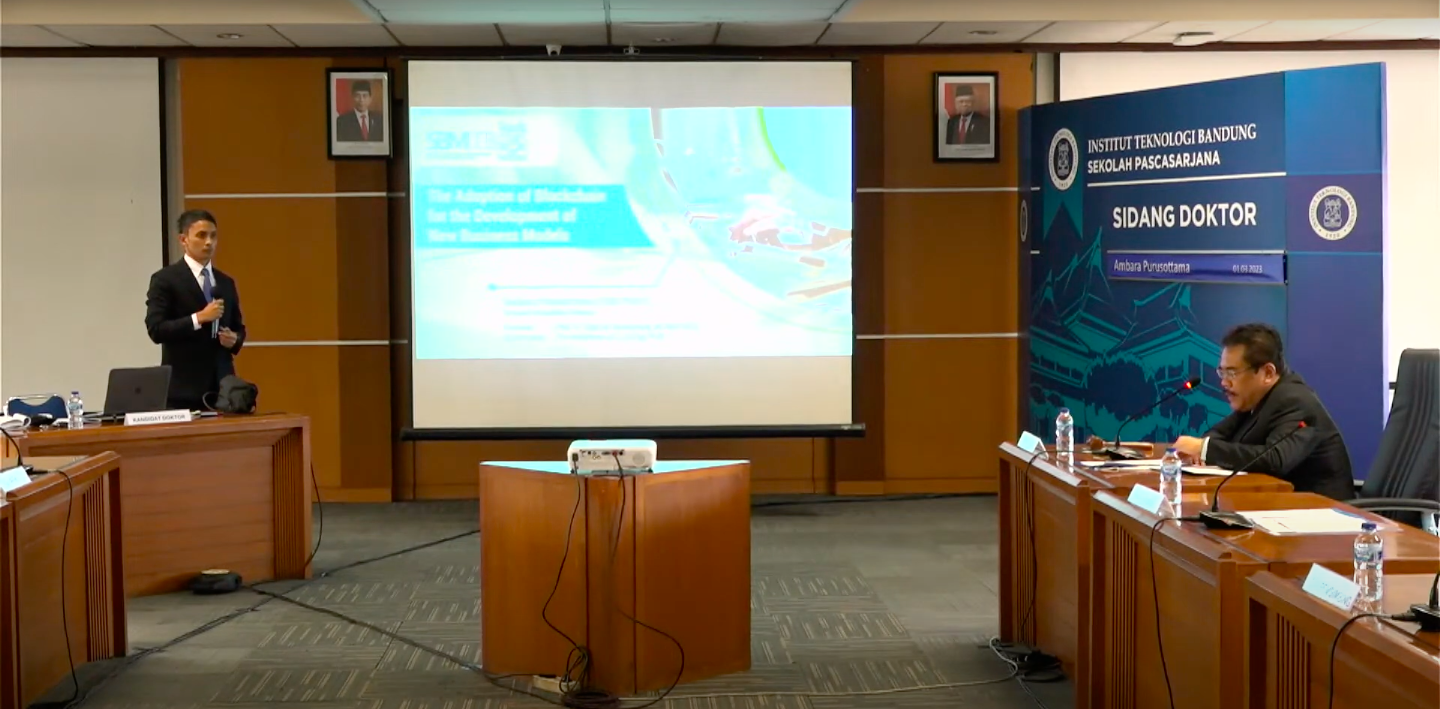Blockchain is an advanced database mechanism that allows sharing of information transparently. The blockchain database stores data in blocks linked together in a chain.
They are connected in a chain. The data is chronologically consistent as users cannot delete or change chains without the network consensus. As a result, users can use blockchain technology to create an immutable ledger.
This immutable ledger can track orders, payments, accounts, and other transactions, among other things. The system has a built-in mechanism that prevents unauthorized transaction entries and creates consistency in the shared view of these transactions.

Ambara Purusottama discussed the application of blockchain in the business world when defending his dissertation entitled “Blockchain Adoption for the Development of New Business Models” in Bandung on Wednesday (1/3). Ambara successfully defended the dissertation at the Doctor of Management Science meeting in the Business Management Study Program, SBM ITB. The promotors of this research are Prof. Ir. Togar Mangihut Simatupang, M.Tech., Ph.D. and co-promoter Yos Sunitiyoso, S.T., M.Eng., Ph.D. The examiner are Santi Novani, S.T., MT, Ph.D., Dr. Liane Okdinawati, S.T., MT from SBM ITB, and Prof. Ir. Sani Susanto, MT., Ph.D., CRMP, APU, AER from Parahyangan Catholic University.
Ambara explained the importance of implementing blockchain technology in the business world. The blockchain for using a shared ledger, for example, is immutable. The ledger is only accessible to members with permission.
Network members control what information each organization can view or actions each can take. Blockchain is sometimes referred to as a “trustless” network. Not because business partners don’t trust each other but because they don’t have to.
This trust is built on enhanced blockchain security, greater transparency, and instant traceability.
In his dissertation, Ambara raises three issues. First, although the academic discussion on the blockchain is increasing, it is necessary to systematically review the current discussion. Second, the topic of blockchain adoption for today’s business model innovation is potentially different in implementation. Therefore, this study aims to promote an understanding of blockchain adoption for business model innovation (BMI). Third, this study also found that the understanding of adopting blockchain for BMI is mostly done using a static framework approach, which is difficult to explain the interactions in the system.
Ambara’s research has also been published in the Journal of Business Process Management–Scopus Q1– entitled “Blockchain Adoption Spectrum for Developing Business Model Innovations.” Another article derived from this research was also accepted for publication in the International Journal of Innovation Science (Scopus Q2).




